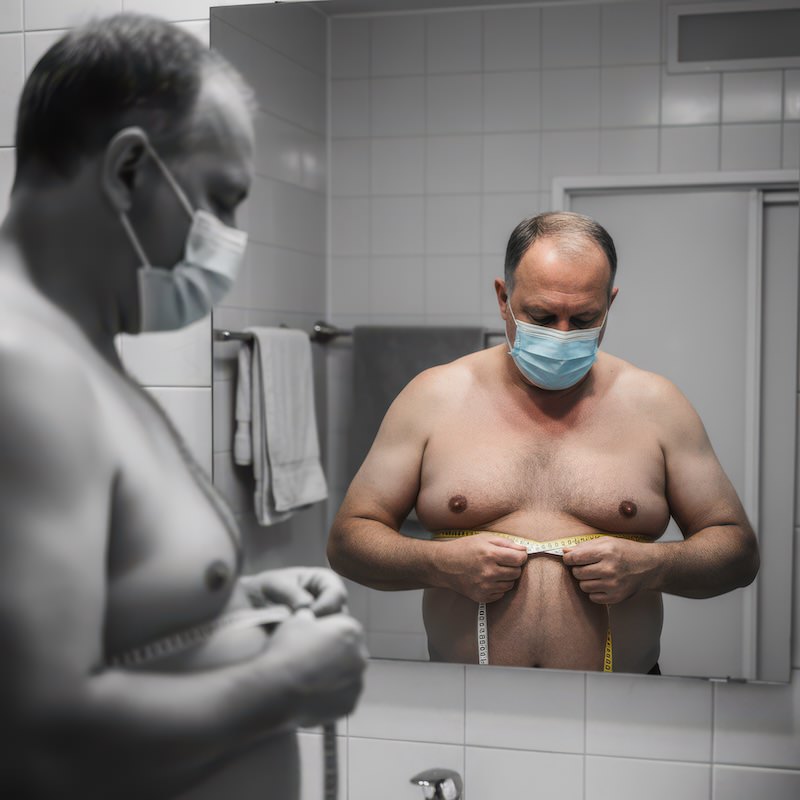You wouldn’t know it if you wander along Manly beach at the height of summer, but us Aussies are sicker than we think. Two-thirds of adults, men especially, are overweight or obese. In 2022–23, 65.8% of Australians were affected, with 31.7% obese—much higher in men aged 55–64, where it hits around 40.6% (Obesity Evidence Hub). That translates to millions heading for cardiometabolic, kidney, neurodegenerative disease, diabetes, or cancers.
These illnesses represent years of decline when they should be firing on all cylinders. They may not all affect life span (how long you live), but they sure will affect health span (how long you live well). This isn’t because we forgot how to be healthy. We mostly kicked smoking after a 70-year fight. We rolled out statins and tailored cancer treatments, and we added life years.
But the meteoric rise of metabolic disease is wiping out some of those gains. The culprit? Toxic fat, meaning the fat that is lodged in our liver, pancreas, heart, muscles. It pumps out inflammation and wrecks our health.
History ain’t changed
Public health campaigns of the last few decades failed to dent obesity. While campaigns pushed healthy habits, fast food was and still is being sold on every corner, 24/7. In Australia, obesity rates soared from 24.6% in 2007–08 to 31.7% by 2022–23 . That’s millions more blokes carrying extra weight and extra risk.
Workshops telling you to “eat less and move more” don’t work when food is engineered to hijack your brain’s reward circuits, with salt, sugar and fat hitting harder than a vape hit. These ultra-processed foods spike insulin, pack visceral fat on your organs, and grease the wheels for chronic disease.
Liberated from the fold
We fought smoking by showing its ugliness: cancerous lungs, addiction, manipulation. That cultural shift took decades, but it (mostly) worked. Now we have to do the same for junk food. We need to call it out, expose the trade-offs, and fight food that’s toxic by design. Professor Ashley Gearhardt, summarising research comparing food industry tactics to those of tobacco and addictive substances, recently noted that ultra-processed foods “now dominate our food environment and are created in ways that parallel the development of addictive drugs, including the inclusion of an unnaturally high dose of rewarding ingredients that are rapidly absorbed into the system.” Ouch.
Won’t get fooled again
Here’s the good news: unlike smoking, we can punch back medically. Australia has five obesity drugs approved by the TGA, (called sema glutides), including Ozempic and Wegovy. These can help shed 15–18 kg in a year. And their success proves obesity is not a moral failing, it’s biology.
But there’s a snag (pardon the pun). These drugs are expensive (~$2,000/year), and not all are subsidised under PBS for obesity, only for diabetes. That leaves many Aussies paying or buying unregulated knock-offs. Even the Royal Australian College of General Practitioners now urges including sema glutides in PBS thanks to their dual benefits: weight loss and heart/kidney protection.
Change it has to come
So, in the spirit of brotherhood, here is some direct advice:
- Know Your Numbers: If your waistline is creeping, don’t shrug it off. Ask your GP for tests (liver, lipids, A1C) and take them seriously.
- Stop Feeling Guilty / Start Getting Help: Obesity isn’t your fault. But responsibility is yours. Ask your GP about meds, therapy, and dietitians.
- Demand Fair Access: Support PBS access for these drugs. Talk to your MP, back the RACGP push, and don’t settle for sticker shock.
- Ditch Junk Culture: We need to label ultra-processed food for what it is: addictive, engineered, harmful. Time to change the narrative and the shopping aisle.
Bottom line for Aussie blokes
We’ve beaten health foes before. This time the enemy is hidden in every chip packet. The weapon? A smart mix of biological insight, medical tools, policy muscle, and most importantly, biting truth.
Lose the guilt. Use the tools. Grow stronger. Tip your hat to the new health revolution, and don’t let the toxic fat win.
